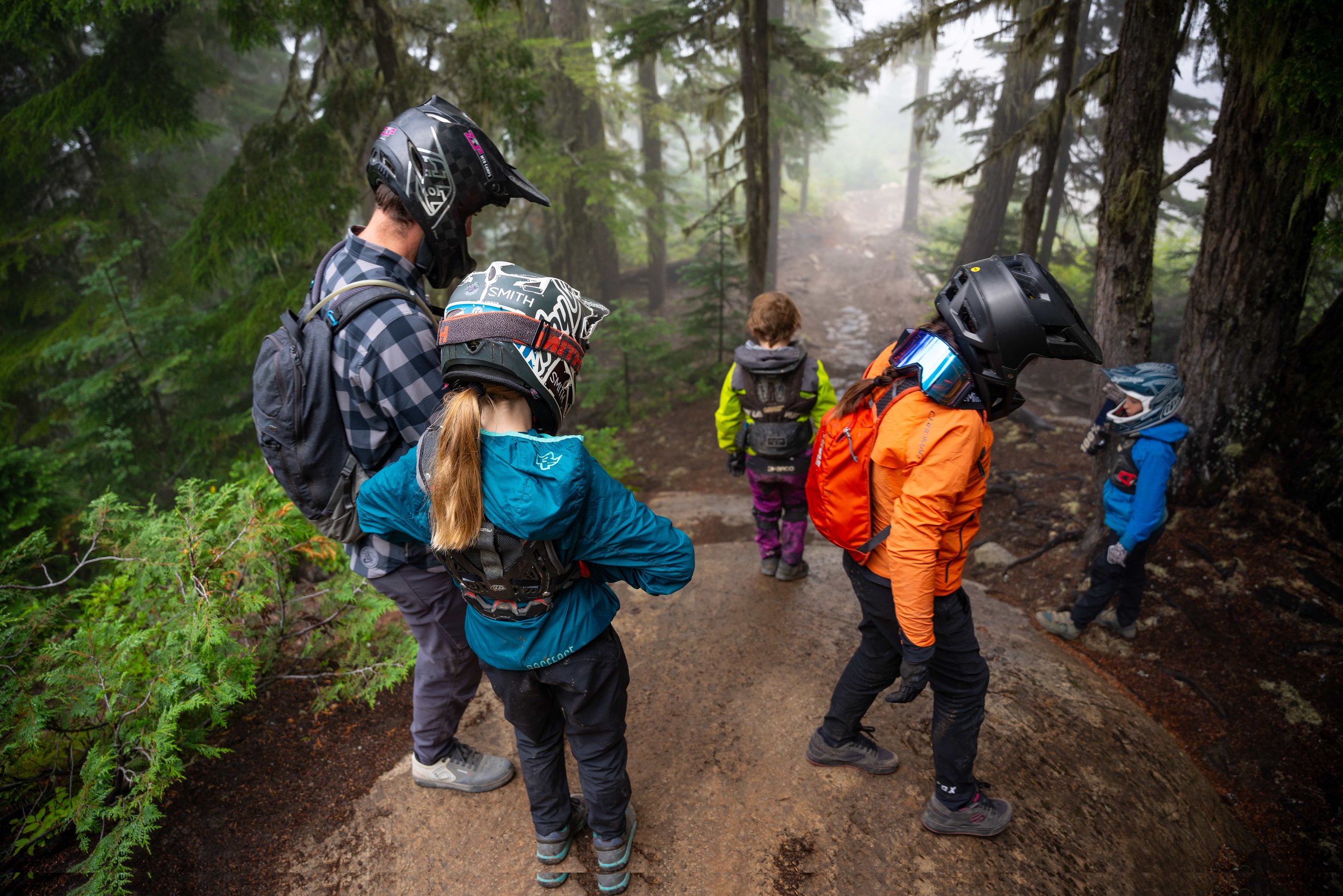What Makes GSMBC Coach Education Different?
At GSMBC (Global Syndicate of Mountain Bike Coaches), we’re always evolving—and one of the most exciting areas of growth is in how we train and educate our coaches through high-quality instructor training programs.
Mountain biking is a unique sport. It’s not skiing or snowboarding, and while those models offer useful insights, they don’t always translate. The terrain varies more. The equipment changes frequently. And with that comes a much broader spectrum of considerations—mental, technical, and social. That’s why our approach to coach and instructor training is holistic, dynamic, and always rooted in the real-world needs of riders and coaches.
In this post, we want to dive into what we’re doing differently at GSMBC, particularly in how we develop mountain bike coaches who are more than just skilled riders—they're effective educators, mentors, and guides.
Coaching is more than just about teaching technical skills…
A Holistic Philosophy
We’ve always believed that coaching is about more than just knowing how to ride well. It’s about how you work with people. And that means mountain bike coaches need a holistic approach—one that goes beyond drills and terrain and looks at the full picture of the rider’s experience.
Back in the early days of instructor training, the focus was on moving away from terrain-based teaching and toward skill-based instruction—understanding what specific skills are, how they break down, and how to teach them effectively. Over the past 10 to 20 years, we’ve made huge strides in that direction, especially in helping instructors move beyond the idea that what works for a pro automatically works for every student.
But we believe it’s time to go even further.
The Six Pillars of Coaching at GSMBC
To meet the evolving needs of students, our coach education and instructor certification system is built around six key pillars. These form the foundation of what it means to be a well-rounded, effective mountain bike coach:
Social Skills – Connecting with students, building trust, and creating a positive learning environment.
Guiding Skills – Leading safely and confidently on varied and sometimes unpredictable terrain.
Teaching Skills – Communicating clearly, adapting to learning styles, and structuring lessons that stick.
Riding Skills – Demonstrating with clarity and purpose, and knowing how to assess and improve performance.
Mental Skills – Helping riders manage fear, build confidence, and stay mentally resilient.
Equipment Skills – Understanding bikes and gear setup to ensure safety, comfort, and performance.
Each of these areas is essential. Together, they allow coaches to deliver exceptional lessons tailored to each student’s unique experience, goals, and challenges—skills we build step-by-step in every GSMBC instructor course.
Why This Matters Today
We live in a different world than we did 15 or 20 years ago. Riders are coming in with more diverse goals, different learning needs, and a broader range of experience levels. Instructor training needs to reflect that.
Our goal is to keep evolving. We’re asking ourselves:
What does the modern mountain bike student actually need?
How can coaches be better prepared to meet those needs?
Are we just training instructors—or are we building true coaches?
This is the future of coach education and instructor development at GSMBC. It’s about taking everything we’ve learned and pushing it further. It’s about breaking down outdated myths and moving toward a more thoughtful, skillful, and inclusive way of teaching.
Learn More or Ride With Us
If you’re curious to learn more about our coaching philosophy, dive deeper into our six pillars, or just want to see how we do things differently—explore the rest of our website. But honestly, the best way to understand what makes GSMBC special is to join an coach education course.
Come ride with us. Learn from our team of experienced educators, mentors, and trainers from around the world. We’ll see you on the trails!

